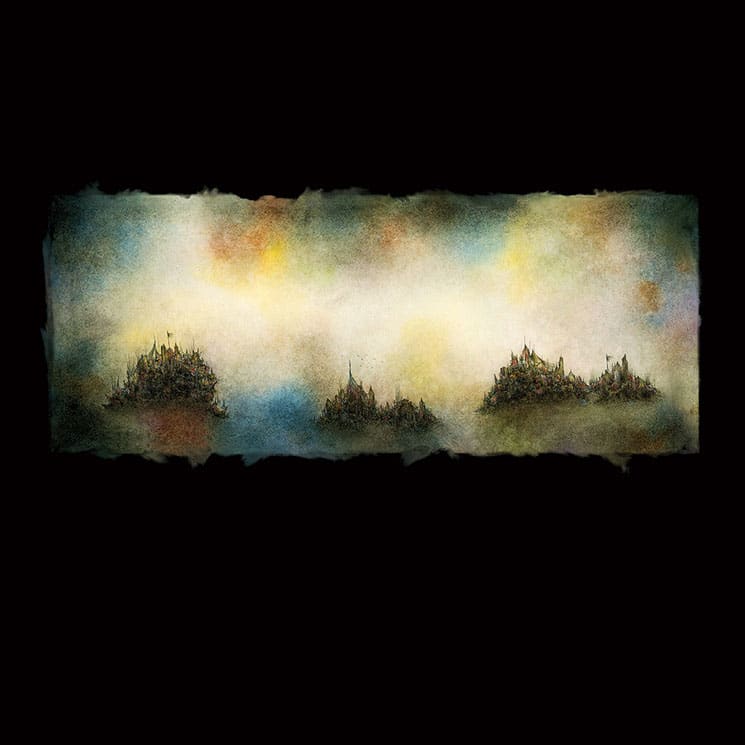Over the course of almost two decades, Matthew Cooper has mainly taken one of two approaches to his Eluvium output: as a painter of expansive, wall-to-wall landscapes of ambient sound that transport you to another dimension; and as a composer of quiet, ruminative piano pieces that hang in the air like friendly ghosts.
That former approach has made him one of the most steady and recognizable recording artists in ambient music, with eight Brian Eno-esque albums each evolving from the last and exploring a new concept or story. But it's the latter that has been mostly neglected for 15 years.
Eluvium had a run of superb ambient records, like 2007's Copia and 2013's Nightmare Ending, arguably peaking with 2010's boundary-pushing Similes, and the last several albums strayed the furthest yet from the real world of flesh, wood and ivory, stretching far into the unknown universe.
Now, Cooper has slipped through a wormhole and been transported back to the creaking, sighing quiet of home. Pianoworks is his first solo piano album since 2004's An Accidental Memory in the Case of Death, and if it weren't for that record, this one would be an unprecedented transformation. There really is nothing but the 88 keys to be heard in these 13 tracks — a round rejection of the many textural layers that make up the usual Eluvium record.
Seeking to capture the simplicity, innocence and imagination of childhood, Pianoworks is intentionally uncomplicated in this regard. "Quiet Children" and "Masquerade" have a childlike wonder to them, like the first few steps in a big world. "Recital" has a lovely harmonic progression, "Carrier 32" a compelling melodic hook, and "Soliloquy & Aside" an emotive rise and fall — but these qualities are often sorely missing elsewhere. For an album that's inspired by the simple joy of childhood, there's not a whole lot of joy in it. It is thoughtfully composed but, for the most part, emotionally flat, and at times even feels rather metronomic and inhuman.
Yes, Pianoworks does have its beautiful moments of levity; Cooper is great at that. But the experience of listening to it feels very passive. It's happening, but you, the listener, are not so much involved as you are just in the vicinity. It doesn't wrap you up and envelop you the way Eluvium works often do.
Yet if there's an album to come that combines the organic inspiration and the gentle, comforting tranquillity of these piano compositions with the satisfyingly supernatural sounds and depth of creativity found throughout Eluvium's main body of work — an evolved and refined Copia, for instance — then Cooper could reach another pinnacle in his career.
(Temporary Residence)That former approach has made him one of the most steady and recognizable recording artists in ambient music, with eight Brian Eno-esque albums each evolving from the last and exploring a new concept or story. But it's the latter that has been mostly neglected for 15 years.
Eluvium had a run of superb ambient records, like 2007's Copia and 2013's Nightmare Ending, arguably peaking with 2010's boundary-pushing Similes, and the last several albums strayed the furthest yet from the real world of flesh, wood and ivory, stretching far into the unknown universe.
Now, Cooper has slipped through a wormhole and been transported back to the creaking, sighing quiet of home. Pianoworks is his first solo piano album since 2004's An Accidental Memory in the Case of Death, and if it weren't for that record, this one would be an unprecedented transformation. There really is nothing but the 88 keys to be heard in these 13 tracks — a round rejection of the many textural layers that make up the usual Eluvium record.
Seeking to capture the simplicity, innocence and imagination of childhood, Pianoworks is intentionally uncomplicated in this regard. "Quiet Children" and "Masquerade" have a childlike wonder to them, like the first few steps in a big world. "Recital" has a lovely harmonic progression, "Carrier 32" a compelling melodic hook, and "Soliloquy & Aside" an emotive rise and fall — but these qualities are often sorely missing elsewhere. For an album that's inspired by the simple joy of childhood, there's not a whole lot of joy in it. It is thoughtfully composed but, for the most part, emotionally flat, and at times even feels rather metronomic and inhuman.
Yes, Pianoworks does have its beautiful moments of levity; Cooper is great at that. But the experience of listening to it feels very passive. It's happening, but you, the listener, are not so much involved as you are just in the vicinity. It doesn't wrap you up and envelop you the way Eluvium works often do.
Yet if there's an album to come that combines the organic inspiration and the gentle, comforting tranquillity of these piano compositions with the satisfyingly supernatural sounds and depth of creativity found throughout Eluvium's main body of work — an evolved and refined Copia, for instance — then Cooper could reach another pinnacle in his career.
